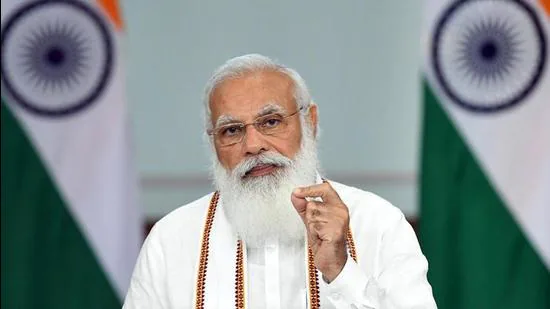Even as US President Joe Biden opened the Summit of Democracy by raising the alarm about backsliding in democratic institutions worldwide, Prime Minister Narendra Modi, in an intervention, said that countries should follow their constitutional principle and added that tech companies should help to preserve open societies.
On Thursday, Biden inaugurated the first White House virtual ‘Summit for Democracy’ by addressing over 100 leaders over the need to shore up democracy against the threat from autocrats.
“Democracy doesn’t happen by accident. And we have to renew it with each generation,” he said. “In my view, this is the defining challenge of our time”.
In his speech, he also alluded to United States’ domestic challenges to its democratic institutions and traditions.
Organising a summit for democracy in the first year of the presidency had been part of Biden’s foreign policy commitments during his presidential campaign.
Following his inaugural speech, Biden presided over a closed-door session where 12 leaders, including Modi, were invited to make their interventions. Modi will also make a national statement on Friday.
While the full statement has not been made public, official sources stated that Modi underlined the “need for democratic countries to deliver on values enshrined in their constitutions”.
He also claimed that “four pillars of Indian democratic governments” are “sensitivity, accountability, participation and reform orientation”.
Calling for reform of international institutions, Modi also said that “principles of democracy should also guide global governance”.
Official sources also added that the Indian prime minister claimed that since technology could impact democracy “positively or negatively”, “technology companies should contribute to preserving open and democratic societies”.
The Indian government has had a contentious relationship with IT companies Twitter and Facebook companies over the new IT rules and compliance over requests to ban some accounts.
The US government sent invitations to 112 countries to participate in the summit. Among the major powers, Russia and China were not on the guest list.
From South Asia, India, Pakistan, Nepal and the Maldives got the invitation. Pakistan declined to participate, but did not officially give any reason.
In his speech, Modi praised Biden’s initiative for organising the democracy summit and asserted that as the world’s largest democracy, India was always willing to share its experience.
The Indian prime minister also stated that India’s constituent assembly had held its first session 75 years ago on this exact date.
Stating that India’s “civilisational” ethos is one of the “original sources of democracy”, Modi claimed that “the democratic spirit, including respect for rule of law and pluralistic ethos, is ingrained in Indians”.
“The Indian diaspora carries it too, thereby contributing to economic well-being and social harmony of their adopted homes,” he said, as per sources.
Ever since the invitation list was revealed last month, questions have been raised on the countries included or excluded from participation.
The Washington-based think tank Carnegie Endowment observed that rather than limiting participation to a core group of “committed democracies”, the White House “opted for a big tent approach”.
Combining democratic scores of Freedom House and V-Dem project, the think-tank observed that India was among a group of four countries, along with Brazil, the Philippines and Poland, with “serious backsliding concerns due to heightened levels of autocratization or big declines in freedom of expression over the past ten years”.
Earlier this year, the US government-funded non-profit Freedom House had downgraded India’s status from a “free” to a “partly free” country. There was an immediate strong reaction from the external affairs ministry, information and broadcasting ministry and even the Union finance minister, dismissing the assessment as “inaccurate”.
In the run-up to the virtual summit, Freedom House issued a scorecard of the participating countries. About India, the democracy watchdog observed that the political rights of Indian Muslims are “threatened” and “marginalised segments of population face obstacles to full political representation”.
It further stated that human rights and advocacy groups “face threats, legal harassment, excessive police force, and occasionally lethal violence.”
About the media, Freedom House noted that the Indian government continues to “harass journalists” and “impose frequent internet shutdowns”.
On the attitude towards tech firms, the think-tank asserted that “social media companies face broad obligations to restrict online content at the request of authorities, and to undermine end-to-end encryption”.













